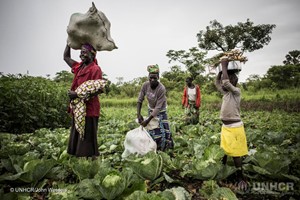In the realm of the food and beverage (F&B) industry, the landscape is fraught with challenges, notably the imperative to balance operational efficiency with environmental responsibility. As businesses strive to thrive in a buyer's market, the specter of escalating operational costs and the pressing need to demonstrate commitment to sustainability loom large. In response, decarbonisation has emerged as a beacon of hope, promising to address both cost optimization and environmental stewardship. However, amidst this zeal for renewable energy solutions, a cautious approach is warranted to avoid unwittingly exacerbating existing challenges.
The analogy of the 'cobra effect' serves as a sobering reminder of the potential pitfalls of hastily implemented solutions. While the shift towards renewables appears enticing, there exists a palpable risk of burdening energy grids beyond capacity, thereby triggering price hikes and economic repercussions. The reality is that current renewable energy infrastructure is not yet equipped to single-handedly support the colossal energy demands of the modern world.
In this context, a nuanced approach is imperative. Before embarking on sweeping energy transitions that necessitate substantial investments in infrastructure, F&B enterprises must meticulously evaluate all available options. What proves efficacious for one facility may not necessarily be optimal for another. Thus, a methodical three-step process emerges as a pragmatic roadmap towards sustainable decarbonisation.
The initial phase of minimisation entails a comprehensive audit of manufacturing processes to establish a baseline for thermal utility generation. By scrutinizing factors such as energy efficiency, operational practices, and heat usage, organizations can identify avenues for reducing energy consumption. From adjusting setpoints to upgrading equipment, this phase lays the groundwork for subsequent optimization.
Optimization represents the pivotal second step, wherein F&B entities endeavor to maximize energy efficiency within existing frameworks. Leveraging innovative strategies like Circular Thermal, which capitalizes on waste heat recovery and high-temperature heat pumps, offers a compelling avenue for substantial carbon reduction. By harnessing internal heat exchange networks and deploying sustainable steam trap solutions, enterprises can significantly diminish their reliance on carbon-emitting energy sources.
The culmination of this iterative process is decarbonisation, wherein the focus shifts towards selecting and implementing non-fossil-fuel energy sources. By strategically integrating renewable energy solutions and, where feasible, incorporating carbon capture technologies, F&B companies inch closer towards the coveted goal of net-zero emissions. Crucially, this approach not only mitigates environmental impact but also yields tangible returns on investment, thereby bolstering long-term sustainability.
Amidst the prevailing uncertainties surrounding energy prices and regulatory landscapes, the imperative for F&B companies to chart a course towards sustainability has never been more pronounced. By embracing a tripartite approach of minimization, optimization, and decarbonisation, enterprises can navigate the energy transition with confidence. In doing so, they not only future-proof their operations against escalating costs but also reaffirm their commitment to environmental stewardship.
As the F&B industry stands at the nexus of innovation and sustainability, the time is ripe for concerted action. By embracing the principles of energy efficiency and renewable integration, businesses can carve out a path towards a greener, more resilient future—one where profitability converges harmoniously with planetary well-being.
foodprocessing.com.au














